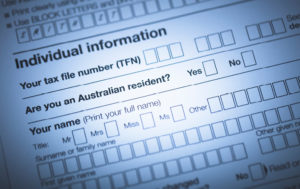If your small business has not only survived but thrived during the pandemic, you may be considering a change of business structure, typically from sole trader to more complex arrangements such as a company or trust structures. Any changes should be well thought-out and carefully implemented to avoid costly mistakes.
Most small businesses are sole traders with the individual as the owner and controller of the business. While it is the simplest and cheapest business structure, sole traders are legally responsible for all aspects of the business. This means that debts and losses cannot be shared with other individuals, and while you can employ workers in your business, you cannot employ yourself. Hence, as a sole trader you cannot claim deductions for money taken from the business as “wages” even if you think of them as wages.
Usually, as a sole trader, you would use your individual tax file number when lodging your income tax return, and report all your income using the section of business items to show your business income and expenses. The tax you pay will be at the same income tax rates as individual taxpayers although you may be eligible for the small business tax offset.
If your business is ready to move to a more complex structure, a company structure may be for you. A company is a legal entity within itself and pays tax at the company rate which may be lower than the personal tax rate you would pay as a sole trader. It may also be eligible for small business concessions and provides some asset protection. The downside of a company structure includes higher set-up and administration costs and additional reporting requirements.
Some of the common mistakes made by sole traders moving to a company structure include reporting income for the wrong entity (ie continuing to report income as a sole trader) and personal use of business bank accounts. As the company is a separate legal entity the money that the company earns belong to the company and individuals that control the business cannot take money out of the business except as a formal distribution of the profits or wages.
If you decide to convert your sole trader structure into a company structure, you should be aware that if you use company assets as a director or shareholder, it must be treated as a benefit. Div 7A or FBT provisions could apply if you do not treat these benefits correctly.
Setting up a trust is perhaps the most expensive option when considering a change in business structure as a formal deed is required outlining how the trust will operate and there are formal yearly administrative tasks for the trustee. Note a trustee is legally responsible for the operation of the trust and can be an individual or a company, but you opt for a company as a trustee, there will be additional set up costs.
However, the benefit of a trust is the flexibility it affords the trustee to distribute income amounts to adult beneficiaries depending on the trust deed. In addition, if all trust income is distributed, the trust is not liable to pay tax and each beneficiary reports the income in their own tax return which may be advantageous if one or more beneficiaries are on a lower tax bracket. 



